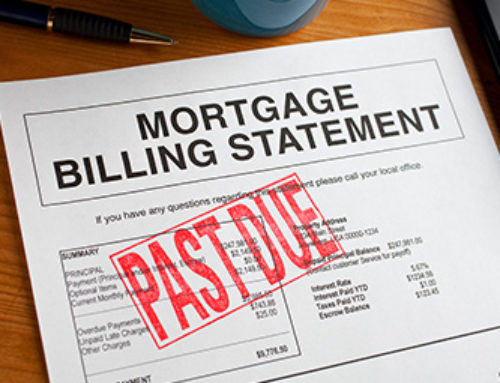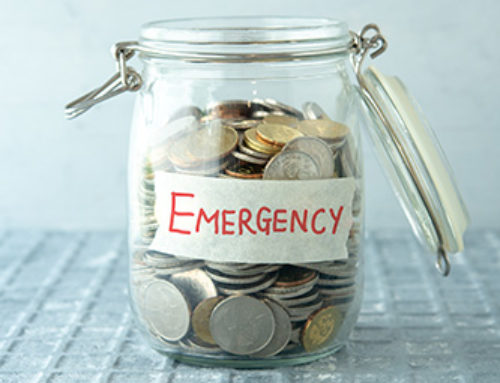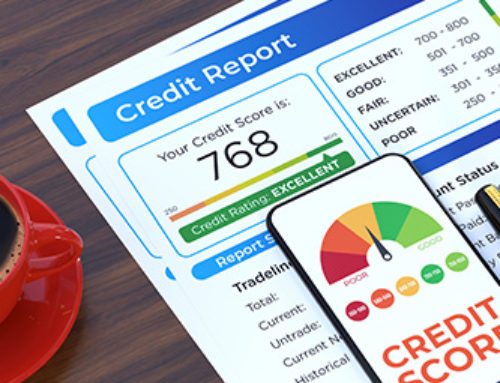Are you overwhelmed with credit card bills, student loan payments, or other debt? Debt relief can help you manage your financial obligations. There are different forms of debt relief, and one may work better than another.
What Is Debt Relief?
Debt relief refers to a variety of strategies to make it easier to use debt. What debt relief means to you depends on your debt burden and what your pressing needs are. For example, you might need credit card debt relief if you are having trouble paying your credit card bills. Or you might be interested in debt consolidation when you have various types of debt to pay off.
Debt relief programs provide consumers with a fair and sustainable way out of financial difficulties. The programs help consumers make the payments they can afford while reducing and ultimately eliminating debt. Sometimes the solution is to ask lenders to lower the interest rate and lower the monthly payment. Sometimes the lender is asked to reduce the amount owed significantly. Sometimes the lender is asked to extend the repayment terms by one or two years. Either way, the goal of any debt relief program is to end the chaos, confusion, and fear that overwhelming consumers feel. Doing the proper research and finding a suitable debt relief program is an excellent first step in taking back control of your finances.
Know When and When Not to Go for Debt Relief
Debt relief may not be for everyone. So, before exploring the options, it helps to understand who the debt relief is for.
You may want to consider debt relief if:
- You are behind on credit card bills or other loan payments.
- You haven’t been late on your bills, but you are having trouble meeting up with your payments.
- You have tried to manage your debt by yourself, but it looks like you are not making progress.
- You have considered declaring bankruptcy.
- Debt relief may not work for you if:
- You keep increasing your debt balances.
- You are not interested in making a long-term debt settlement commitment.
If you’re always short on new debt, debt relief alone may not be enough. You may also need to tackle the spending habits that keep you in debt.
Debt Relief Options
Debt relief does not work for all situations. There are several ways it can be utilized, depending on the amount you are owing and the type of interest rate you are paying.
Here’s a more detailed look at four of the most common debt relief options.
Debt Consolidation
You can opt for debt consolidation when you have to pay off several different loans or lines of credit. But what is debt consolidation, and how does debt consolidation work? Simply put, debt consolidation means consolidating multiple debts into one. For instance, you can use a personal loan to consolidate debt on multiple credit cards.
Other options for credit card debt relief are balance transfers. In this case, you open a new credit card account, ideally with a low or 0% APR, and then transfer your existing balance to that card.
Debt consolidation means you only have to make one payment per month. However, you may or may not save money on interest. It is also important to understand the advantages and disadvantages of debt consolidation.
Credit Counseling
Credit counseling includes meeting with a credit counselor to discuss your budget, debt, and finances. A credit counselor can help you create a personalized budget that can help you manage your spending and debt after looking at both.
Finding a credit counselor could be a great option if you need help creating a workable debt settlement plan. A credit counselor can also enlighten you on basic budget issues that could be responsible for your financial distress in the first place. Some nonprofit credit counseling agencies offer their services for free.
It is advisable to check the accreditation status of the agency as well as the credit counselor’s certification status with the National Foundation for Credit Counseling (NFCC) or the Financial Counseling Association of America (FCAA).
Debt Management Plans
When you work with a credit counselor or a debt relief program, one option they may suggest is a debt management plan. This is how a debt management plan or DMP works:
- You choose the debts you want to include in the program.
- Make a one-time payment to your debt management plan each month.
- This payment will be distributed among your creditors according to the terms of the plan.
Just Like debt consolidation, you only have to make one payment. However, with this type of debt relief program, you don’t need to apply for a loan or open a credit card to cover the balance. Depending on the program, you can lower your interest rate or get a waiver for certain fees.
Even though you can get cheaper interest rates or fee reductions with a debt management plan, you still have to pay off all of the principal.
Debt Settlement
Debt settlement is usually considered a last resort. It permits you to pay off your debts for less than you owe. If your creditor agrees to settle a debt, they will write off the balance. This is practically a kind of debt relief because you do not have to pay back more than the agreed settlement amount. Debt settlement is something you can do by yourself if you have the money to pay your creditors and are comfortable negotiating one-on-one with them.
There are also debt relief companies that will negotiate on your behalf. However, this usually involves paying a fee to the company to help you get debt relief on your loan or credit card.
Also, keep in mind that you usually need to be late on your payment before a creditor can consider debt settlement with you. Therefore, compared to other debt-relief options, debt cancellation can be more damaging to your creditworthiness.
For example, if you are working with a debt settlement company, you will be asked to make payments to a separate account they created instead of paying your creditors. As a result, you will be late with your creditors for a period of time, which harms your creditworthiness.
Debt settlement can also impact income tax, either through a debt settlement company or on your own, since the amount of debt likely to be repaid is considered as taxable income.
What You Should Know Before Applying for Debt Relief
Debt relief programs can help you get rid of your debt burden. But it is a choice that must make with care. It is not necessarily a perfect solution, and you will have to make some important tradeoffs. Before you jump into debt relief, keep these three critical points in mind.
Interest
Your credit card debt can be alleviated by debt consolidation loans or lines of credit and 0% balance transfer offers. However, consider the costs implications. Ideally, debt consolidation results in a lower interest rate. A lower APR means more of your monthly payment goes to the principal, enabling you to pay off your debt much faster. In addition, there will be less interest during the repayment period.
If you want to consolidate your debt, the first thing to consider is the interest rate your credit score qualifies you for. And if you’re interested in something like a debt management plan, ask if lower interest rates are possible as you set your payment terms.
Fees
You can incur some fees with some debt relief options, and it helps to take them into account when deciding whether the cost is worth it. For example, credit counselors may or may not charge a fee to help you create a budget and spending plan. However, with debt consolidation loans, you should be aware of loan fees and prepayment penalties. You may have to pay a balance transfer fee if you use a 0% APR credit card for debt consolidation.
If you consider a debt management plan, you may need to pay a monthly fee to sign up. Companies that negotiate debt settlement may also require a service charge, sometimes up to 15% to 25% of the amount paid or forgiven. Since fees can add to the total amount you have to pay back, it’s important to understand what you’re paying upfront and how it can add up over the long term.
Scams
If you’re considering debt relief services, whether it’s credit counseling, a debt management plan, or debt relief, it is important to confirm the legitimacy of the company you’re working with. Failure to do due diligence may put you at risk of falling victim to a debt relief scam.
You will also need to understand the differences between debt consolidation, debt management plans, and debt settlement as described above. Not all debt relief providers are clear enough about these terms to understand what you are getting into, so you need to pay attention to every detail.
Before engaging any debt relief company, keep the following caveats in mind:
- Demanding for upfront payment before providing any services.
- Lack of transparency in explaining what the company does or offers
- Requesting access to personal or banking information
- Promises or guarantees that sound too good to be true
The Consumer Financial Protection Bureau (CFPB) maintains a database of consumer complaints about debt relief companies and other financial service providers. You can check the database with the Better Business Bureau to verify a company’s reputation.
How To Find A Reputable Debt Relief Company
A referral from family or friends is often the best way to find a reputable company, but debt relief is a tricky topic for most people to deal with, so it might not be the most straightforward route.
The National Federation of Credit Counseling (NFCC) or the Financial Counseling Association of America (FCAA) is the safest place to go. Each organization has member companies from across the country who make recommendations that serve the best interests of consumers.
Counselors must undergo a training and certification process to work with consumers. Counselors also go through continuing education programs and must recertify every two years. This ensures that counselors are informed and up to date with debt relief programs.
Avoid dealing with counseling agencies that cannot prove that their counselors are trained and certified.
Fraudulent Claims
Beware of companies that advertise or claim that they can eliminate or pay off your debt for pennies on the dollar. It may be possible in exceptionally rare circumstances, but you are more likely to end up getting ripped off. The first sign that you may be involved in a bogus transaction is if the company asks for money upfront. They want you to pay them off before they do anything to get rid of your debt. This is a violation of federal law.
Debt relief companies cannot accept payment until they can prove that a debt has been paid. If a business asks you for an advance payment, report it to your local attorney or file a complaint with the Consumer Financial Protection Bureau. In addition, do not fall for any “guarantee” claims by debt relief companies. Lenders are not required to accept a settlement offer, so there is no guarantee that your debt will be reduced or eliminated. Once you hear a “guarantee,” consider moving to another business.
Another claim to consider is a company claiming to be able to settle a secured debt. Ask them for evidence supporting the claim. Debt is secured by collateral such as a house, car, or boat. Ask yourself why a lender will accept “pennies on the dollar” when they can foreclose and sell the house, car, or boat to collect the money owed.
If a debt relief company makes suspicious claims, ask them for documented evidence. Don’t be afraid to challenge them. If they’re honest, they will not have a problem showing you evidence. Be careful not to dig a deeper financial hole for yourself by trusting a company that makes claims that are too good to be true. Verify every information before doing business with them.
Bottom Line
When you are in debt, debt relief can be your way out of the debt burden. It can also help you avoid the possibility of filing for bankruptcy. Knowing what to expect from debt relief and how it can help is crucial in choosing the right solution.
With the help of certified debt consultants from Reb0und, you could put your debt stress in the past and move on to your next financial goal. If you’re in so much debt that you are having difficulty keeping up with your payments, it may be time to seek help. Contact us today, and our counselors will be willing to help you lift your debt burden.



